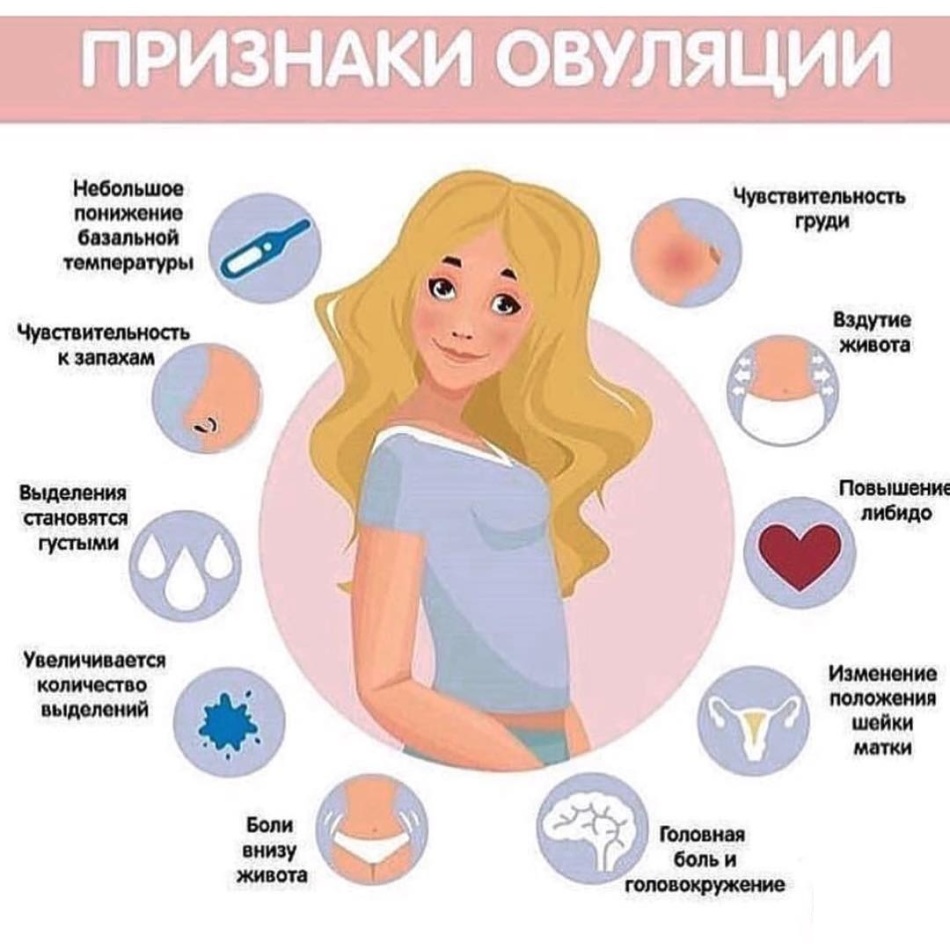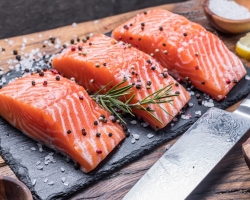The period of ovulation in some women is accompanied by pain. Hormonal changes can take asymptomatic or from a month to a month to be accompanied by typical symptoms.
Content
- Can the lower abdomen get sick with ovulation?
- Pain during ovulation: why does the stomach hurt during ovulation?
- Ovulation pain and analgesic pills
- What are the pain when ovulation?
- What are the causes of pain in the lower abdomen?
- Pain for ovulation: disease or ordinary symptom?
- Pain during ovulation: how many days can continue?
- Video: ovulation pain and ovulatory syndrome
With pronounced discomfort, women are overcome by anxiety. By sorting out various factors, we begin to think about whether the lower abdomen can hurt during ovulation. With a careful attitude to your body, you can learn to distinguish between dangerous symptoms from natural pain. Let's try to figure out how to correctly classify pain in the lower abdomen during ovulation.
Can the lower abdomen get sick with ovulation?
- At the final stage of ovulation from a mature follicle, a female sex is released. The physiological feature is accompanied by the rupture of the tissues and the release of the internal fluid. Despite the natural nature of this phenomenon, the body is injured. Therefore, pain during ovulation is natural symptoms.
- Ovulation occurs only in one of the ovaries. Accordingly, discomfort may not cover the entire lower abdomen, but only the right or left side.
- Deviation from the norm is pain impulses in combination with other manifestations. For example, pain during ovulation Against the background of elevated temperature or abundant secretions.

Small temperature occurs during pregnancy. In this case, dizziness, poor appetite, irritability, pain in the chest will appear, if you did not plan a baby, you need to make a test that will confirm or exclude your assumptions.
- Pain in the lower abdomen and blood secretion often indicates an inflammatory process. The protracted stretching pains require the participation of a qualified specialist.
Pain during ovulation: why does the stomach hurt during ovulation?
- In the process of growth, the egg expands the space of the structural shell. Until the day of ovulation, the tension of the surface layer becomes maximum.
- There is an effect on the ovary, which causes a slight malaise and explains why the stomach hurts before ovulation.
- The ripening follicle in addition to the egg contains a liquid. With a rupture, the substance falls into the abdominal space, irritating the environment. The childcard accompanies the process with active reductions that a woman feels in the form pulling pain during ovulation.

- A follicle rupture sometimes leads to a large amount of blood vessels. In this case, the usual symptoms will be more pronounced.
- Feminial biological processes in each case are held with obvious differences. Physiological characteristics can dull soreness or exacerbate ovulation.
Ovulation pain and analgesic pills
- Regular pain during ovulation can be reduced with painkillers. Before buying medicines yourself, consult a doctor.
- Classic painkillers include ibuprofen, Paracetamol, Aspirin, No-Shpa, Tamipul, Diclofenac, Nimesil.Long -term use of the drug is allowed only under the supervision of a specialist. To improve the quality of life of a woman, doctors sometimes prescribe reception of oral contraceptives.
- If the nature of the pain is diagnosed and associated only with ovulation, The painful area can be warmed with a warm diaper and other improvised means.

It is possible to relieve pain in the lower abdomen during ovulation not only drugs, but also using the temporary adjustment of the usual schedule of the day:
- reduce physical activity;
- drink more water in the middle of the cycle;
- exclude active events, relax more;
- reduce nervous stress using meditation and massage procedures;
- supplement the diet with vitamins and plant foods, exclude fried and fatty dishes.
In rare cases, with regular and severe pain, doctors prescribe a course of antibiotics. Preparations must be taken only after consulting a doctor, without independent prescription.
What are the pain when ovulation?
Pain during ovulation can manifest itself with the following symptoms:
- short -term feeling of needles in the lower abdomen;
- aching spasms for 1-2 days;
- alternating pressing pain;
- sharp painful rubber.
If pain is associated only with the ovulation process, then their character can be repeated monthly in the same time mode.
- If the symptoms accompanying ovulation are constantly changing, become protracted and painful, then you should be more attentive to the state of health.
- Some women feel slight ailments after the egg maturation. Pain after ovulation can also be natural.
- Such manifestations are called a post -valuable syndrome, which in symptoms resembles the condition of the body before the start of menstruation.

Characteristic features:
- tingling and pulling pains in the lower abdomen;
- frequent mood swings;
- general malaise and weakness;
- visual changes in vaginal discharge;
- strengthening biological instincts.
The listed symptoms appear as a result of the formation of a new environment in the area of \u200b\u200bempty follicle.
What are the causes of pain in the lower abdomen?
Consider the most common causes of pain during ovulation:
- Ectopic pregnancy - The fetus develops outside the uterus, during ovulation, discomfort intensifies. Surgical intervention is required.
- Mid -pain - short -term discomfort in the stomach, accompanied by bloating and lack of appetite. This type of pain is easily eliminated using a warm compress.
- Stimulation of ovulation - taking hormonal drugs can cause abdominal pain.
- Polycystic ovary- With this diagnosis, menstruation are irregular in nature. It is necessary to consult a doctor and prescribe treatment.
- Inflammatory processes in the pelvis - arise in the presence of infection. Drug treatment is required.
- C-section - The recovery period is accompanied by pain during ovulation. The pain can be reduced with massage or physiotherapy.
- Endometriosis - The endometrium goes beyond the uterus and causes unpleasant symptoms. Surgical and drug treatment is necessary.

Pain for ovulation: disease or ordinary symptom?
- The same symptoms on certain days mean that this is pain during ovulation, and not from the disease.
- The gynecologist is addressed when unfamiliar deviations in the body appear. Diagnosis and tests will dispel the experiences and doubts.
- The discomfort in the lower abdomen, which lasts more than a week, indicates deviations in the genitourinary system.
With a disease of the reproductive and genitourinary system, symptoms occur:
- vaginal discharge with blood interspersed;
- body temperature surges;
- severe headaches and physical weakness;
- stool disorder or frequent urination;
- bad appetite and nausea;
- labored breathing;
- dizziness and loss of consciousness.
Peremnipotal gynecological diseases provoke serious complications, so you cannot ignore the symptoms of the body. Pain in the lower abdomen occurs with infection of the genitourinary system, bacterial damage to the kidneys, inflammation of the phallopium pipes, infection of the vaginal mucosa and other diseases.
- To compare pain in the lower abdomen with a menstrual cycle, it is necessary to conduct a calendar with notes on menstruation and day of ovulation.
- The day of ovulation can be calculated using the temperature schedule of the rectum - on the day of ovulation A sharp jump is planned.
- Before ripening the egg, a woman’s breasts are slightly poured and touching her is very brightly felt.
Pain during ovulation: how many days can continue?
- In a healthy organism, ovulation manifestations are short -term.
- Normally, the stomach hurts during ovulation no more than a day.
- Discomfort exceeding several days may be a sign of deviations of the reproductive and genitourinary systems.
The pain in the lower abdomen during ovulation accompanies the following diseases of the genital tract:
- bacterial infections;
- tumors of a different nature;
- hormonal leaps;
- chronic disease in the body;
- deviations in the work of the female genital organs.
With a normal cycle, ovulation falls at the end of the second or beginning of the third week of the calendar cycle. The countdown is carried out from the first day of menstruation. Symptoms can become stronger and more painful with age.

Consider several characteristic signs of ovulation:
- tracting translucent mucus in secretions;
- bloating and increasing the number of gases;
- sensitive breasts;
- sometimes signs of ovulation include scarce spotting;
- change in taste and smell - also symptoms of ovulation;
- increased basal temperature;
- changing the hormonal background in analyzes.
In some months, ovulation may not occur, respectively the listed signs will be absent. With age, ovulation is not so regular.







